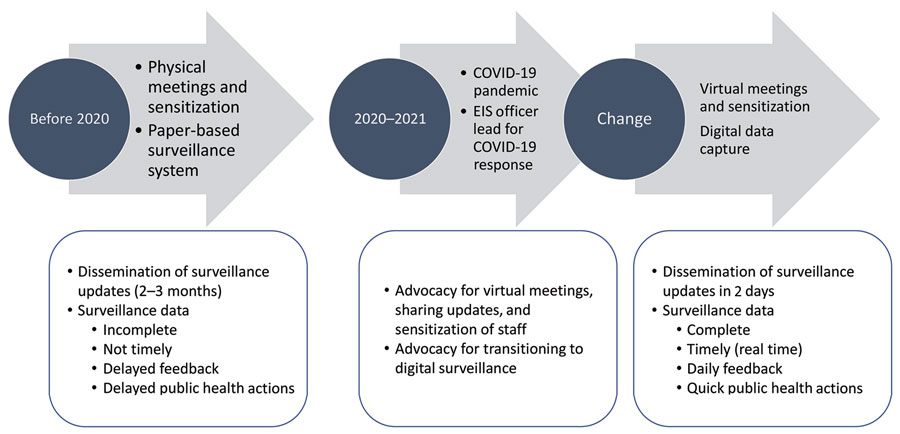Volume 28, Supplement—December 2022
SUPPLEMENT ISSUE
Workforce
India Field Epidemiology Training Program Response to COVID-19 Pandemic, 2020–2021
Figure 3

Figure 3. Implementation changes in surveillance activities in Udupi, Karnataka, India, 2020–2021. EIS, Epidemic Intelligence Service.
Page created: August 02, 2022
Page updated: December 11, 2022
Page reviewed: December 11, 2022
The conclusions, findings, and opinions expressed by authors contributing to this journal do not necessarily reflect the official position of the U.S. Department of Health and Human Services, the Public Health Service, the Centers for Disease Control and Prevention, or the authors' affiliated institutions. Use of trade names is for identification only and does not imply endorsement by any of the groups named above.